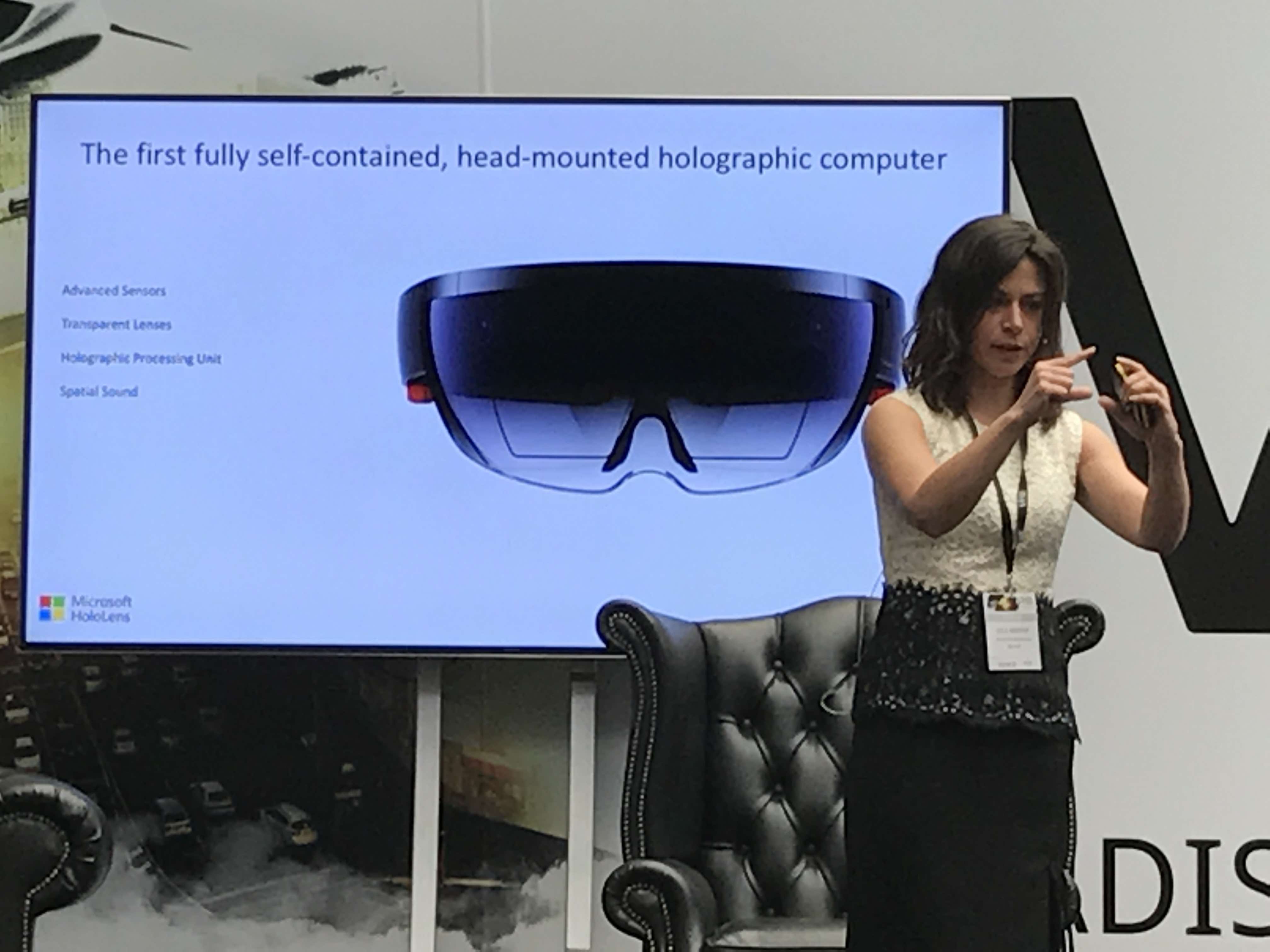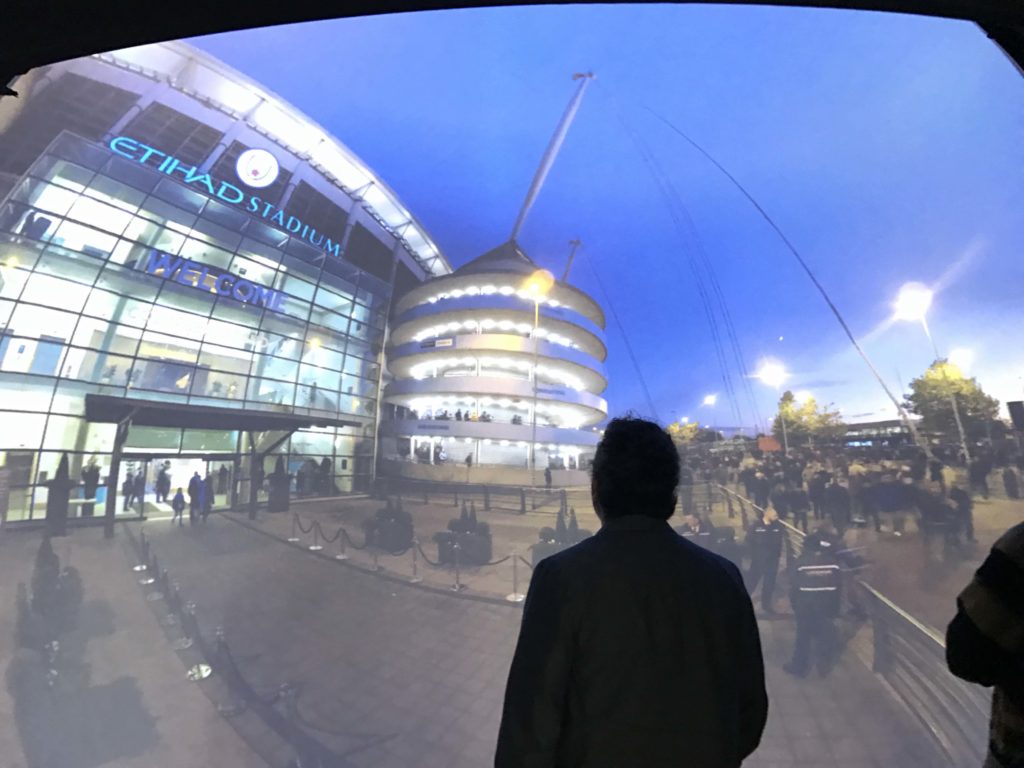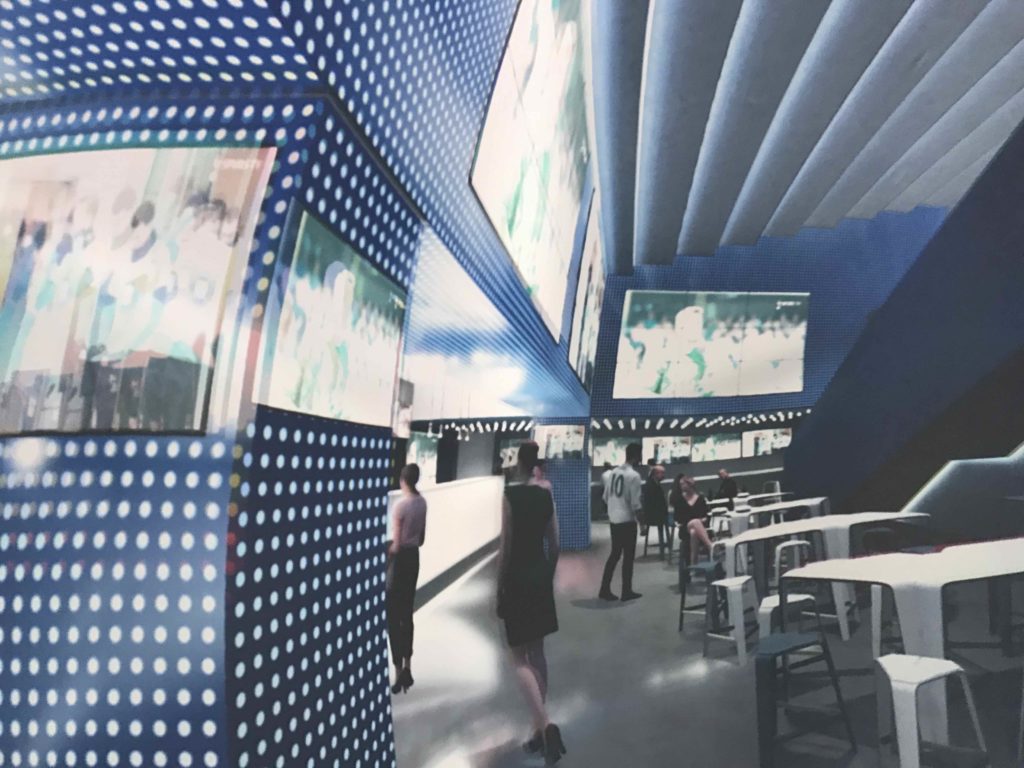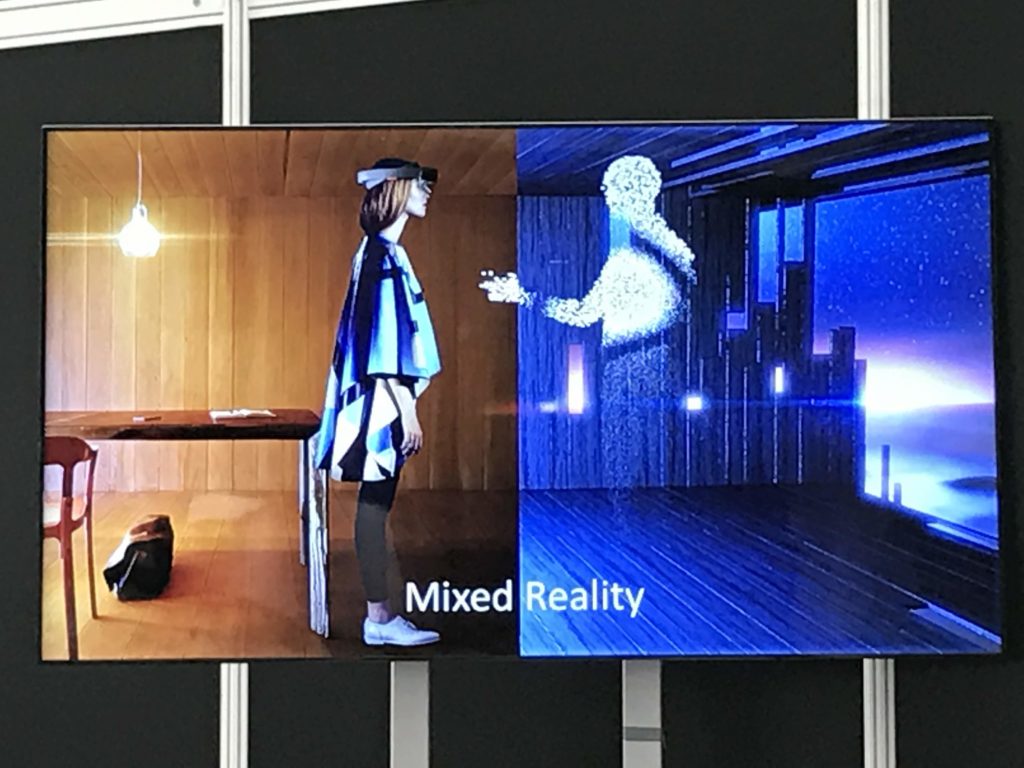By Helen Cracknell
April 28 – It has been a long wait for Virtual Reality to live up to its billing as the next big revolutionary technology for fans to experience football matches. However the technology is there and clubs are waking up to the multiple opportunities of VR across their business, and perhaps more importantly, the opportunities of Augmented Reality and the innovations that Microsoft’s Hololens glasses will bring. The real wait is now for clubs to commit financially.
The VR Show 2017 last week at the Business Design Centre, in Islington, London, saw a number of applications of the technology crossing into the football world to drive commercial initiatives and communicate both with stakeholders and fans.
At the forefront of this new wave of technology was Soluis Studios who were using Immersive Domes to display stunning motion graphics, outstanding VR images and beautiful animation to illustrate their work with Manchester City and Tottenham Hotspur.
For Tottenham, Soluis has developed a VR experience for the architectural build for the new stadium including a VR tour of the new Tunnel Club. Their curved screen, Immersive Domes allows groups of designers, builders, staff, players and fans to share the experience and their thoughts without the need for VR headsets by standing inside the dome.
For Man City, Soluis developed the VR app to showcase and market their new premium hospitality Tunnel Club offering. The VR experience puts the user in the lounge right by the tunnel – immersing them in the centre of the behind-the-scenes activity as players, managers, team staff and match officials prepare for the game. It is a compelling sales tool.
With Diego Gigliani as senior vice president of media and innovation at Man City the club has generally led the way when it comes to exploring the potential of VR. Last May the club teamed up with Sky Sports and LiveLike to launch a VR experience with fans in London, New York and Melbourne.
Fans watched City play Arsenal at the Etihad Stadium in Manchester streamed to their headsets. This has since been expanded, and, in collaboration with Jaunt, the club has launched a more widely-available 360° VR fan experience.
The immersive video captures different moments of the matchday experience and gives access to the players’ changing room. The content is the first full football matchday experience available on Jaunt’s VR platform and was filmed using the Jaunt ONE camera.
These schemes built on previous initiatives including iON cameras being worn by players during training, a 360-degree camera being placed on the roof of the players’ tunnel on matchdays, and the launch of a Google Cardboard-enabled CityVR app.
The CityVR Oculus app is enabled by a Samsung Gear VR headset, and transports fans to a virtual VIP suite where they can watch highlights from a selection of Manchester City’s 2015/16 home fixtures in virtual reality.
View the Man City Tunnel club, as created by Solius, at https://vimeo.com/195643391
See Spurs’ new stadium at http://new-stadium.tottenhamhotspur.com/be-there/?utm_source=social&utm_medium=digital&utm_campaign=nsps
Solius has also produced VR simulation for FC Barcleona’s New Palau Blaugrana Arena http://www.hok.com/about/news/2016/03/16/hok-reveals-design-details-for-fc-barcelonas-new-palau-blaugrana-arena/
VR need not be the exclusive playground of the giant clubs with the biggest budgets. North-east England-based Spearhead Interactive were showing a 360 degrees mobile solution for Middlesbrough FC.
Spearhead developed a VR app for Middlesbrough that gives fans a unique insight into a Riverside match day by following the players’ perspective from the time they step off the bus to when they walk on to the field.
Fans can virtually walk through the players’ entrance before heading to the home team’s dressing room. Once inside, users can view individual profiles for each player and participate in interactive exercises to learn more about the whole team.
Sky’s new Virtual Reality app is a step forward in terms of broader and non-club specific fully immersive Virtual Reality content opening up events like Leicester City’s Premier League Championship celebrations to a wider audience. Sky’s VR app work with a Gear VR compatible smartphone with OS 5.0 or above and a Samsung Gear VR headset.
Sky is also launching two brand new VR experiences: Sky Sports: Closer featuring David Beckham. The footage was created in-house by the Sky VR Studios, in collaboration with Google.
VR may be slow to catch on and the Augmented Reality (AR) forays with Google Glasses may have proved an initial failure, but the technology and the opportunity are not going away. AR enables users to view data and computer generated images overlaid on the real world and Microsoft’s next generation HoloLens – effectively an evolution of the Google Glasses – is undoubtedly a major step forward for Augmented Reality.
On one hand virtual reality experiences mixed with televised screening allows millions of people an immersive experience – as opposed to the average 30-50,000 capacity of top team stadia. However, AR can go a step further and in the same way Pokemon had people out of their homes on to the streets and parks, so AR can give fans unique content and experiences that can be only be obtained by coming to a venue – whether it be stadium or fan zone. Mixed Reality combines AR superimposed on the real or a virtual world.
This isn’t entiorely new but has still not taken off fully. Back in 2012, Southampton fans were able to use Blippar to buy tickets, consume written content, and use Blippar icons on match day programmes to take virtual selfies with players. Fans could also join a competition to hunt for footballs around Southampton and post selfies on social media using the hashtag #EarnYourStripes to enter a prize draw. Recently Man City posted icons match day programmes that allowed fans to take vitrual selfies with players superimposed on various view points of the stadium.
Times are changing and Microsoft may be providing the game changer with its HoloLens. Microsoft describes the headset/glasses as “the first self-contained, holographic computer, enabling you to engage with your digital content and interact with holograms in the world around you”.
Future opportunities for clubs could include holographic images of players appearing in the stadium, live player statistics superimposed on the live match, holographic-style competitions and virtual interviews…and so on. The only limit is the club’s and the developers’ imagination, and of course the budget.
Contact the writer of this story at moc.l1730798662labto1730798662ofdlr1730798662owedi1730798662sni@o1730798662fni1730798662




